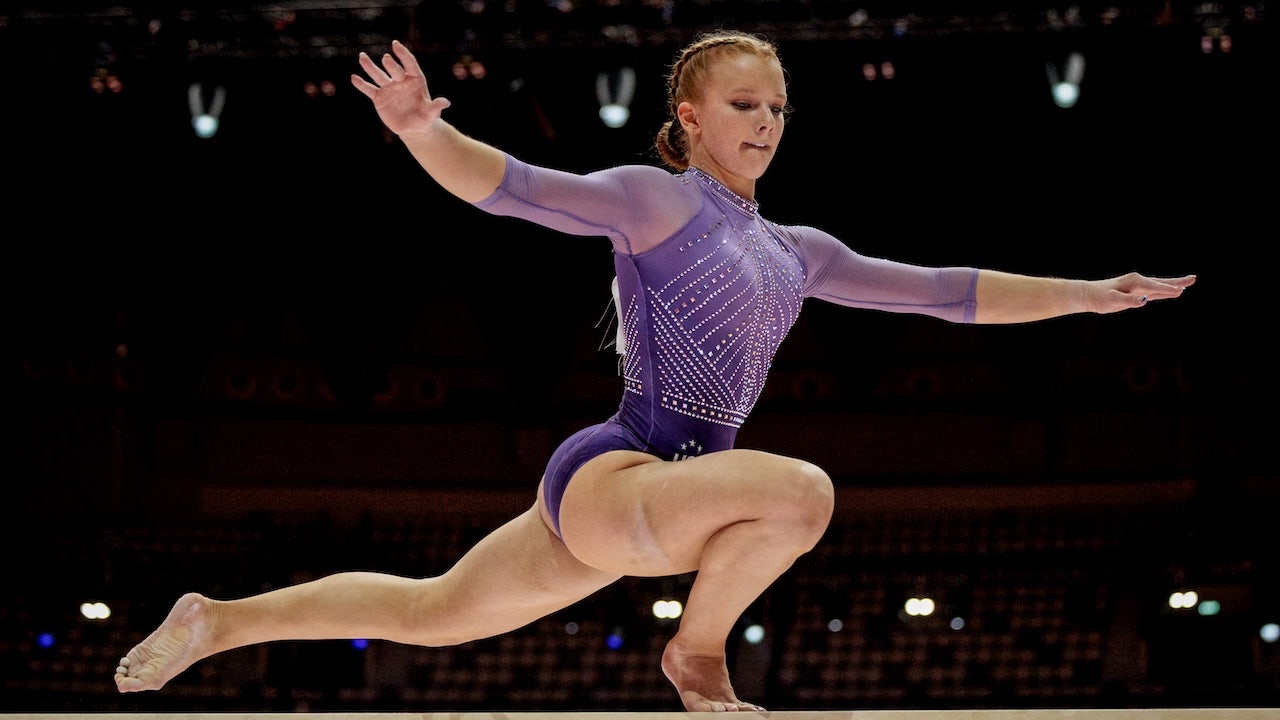US Olympian McKayla Skinner recently spoke out about her ongoing tensions with former teammate Simone Biles and others, as well as her decision to join the "Save Women's Sports" movement. This candid revelation comes amid a challenging period for the U.S. women's gymnastics team, which experienced a notable decline in performance at the recent World Championships held in Jakarta.
At the 2025 World Championships, the U.S. women's gymnastics team secured only two medals—the lowest medal count for the country at this prestigious international competition since 2001. The medals were won by Leanne Wong, who earned a silver in the all-around category, and Joscelyn Roberson, who took home a bronze on vault. This modest medal haul marked a significant departure from the U.S. team’s usual dominance in women’s gymnastics on the world stage.
To put the results in perspective, China and neutral athletes competing under the Russian flag each secured three medals in the women’s category, thus finishing ahead of the United States. For a nation long accustomed to leading the medal count in women’s gymnastics, this outcome highlighted an alarming shift in global competition and raised questions about the future trajectory of the U.S. women’s gymnastics program.
Chellsie Memmel, the U.S. program lead and a former Olympic gymnast herself, addressed the team’s underwhelming performance candidly. According to a report on Olympics.com, Memmel described the competition as “rough” and acknowledged that while there were some strong aspects to the team’s routines, overall execution and aggressiveness in their skills were lacking. She emphasized the need for reflection without dwelling excessively on the setbacks, stressing that the athletes are aware of their performance shortcomings and are motivated to regroup and improve in training.
Historically, the U.S. women’s gymnastics team has been a powerhouse, regularly topping medal counts at international competitions. Since 2006, the United States has only failed to finish as the top medal-winning country in women’s gymnastics twice before—once in 2017, when it tied with Japan, and again in 2021, when it tied with Russia. This year’s performance, therefore, stands out as a significant anomaly, underscoring a potential decline that could affect the team’s prospects in upcoming major events, including the 2028 Los Angeles Olympics.
Adding to the challenges this year, the team was noticeably missing some of its brightest stars. Simone Biles, Suni Lee, Jade Carey, and Jordan Chiles—all key contributors to previous U.S. successes—were absent from the competition. Their absence left a noticeable gap in experience and star power, which may have contributed to the team’s struggles in Jakarta.
Memmel reflected on what the team needs moving forward, emphasizing the importance of confidence and intent in every move. She spoke about the mindset required to succeed at the highest level: approaching each element with the belief that it will be performed flawlessly and having the self-assurance to execute under pressure. This mental toughness, she noted, will be essential for the team as they reset and prepare for future competitions.
Amid these developments in the sport, McKayla Skinner’s remarks bring an additional layer of complexity to the U.S. gymnastics story. Skinner, a decorated Olympian herself, has publicly addressed the ongoing “war of words” with Simone Biles and other former teammates. While details of the feud remain private, Skinner’s decision to join the “Save Women’s Sports” movement signals her commitment to advocating for the integrity and future of women’s athletics beyond gymnastics.
The “Save Women’s Sports” movement has gained attention for its focus on preserving competitive opportunities for female athletes, particularly in light of debates surrounding gender identity and eligibility criteria in sports. Skinner’s involvement in this movement positions her as a vocal figure in broader discussions about fairness, inclusion, and the evolving landscape of women’s athletics in the United States.
As the U.S. women’s gymnastics program confronts these internal and external challenges, the path forward will require not only technical improvements and strategic training but also a renewed sense of unity and focus among athletes and leadership. The underperformance at the Jakarta World Championships serves as a wake-up call, reminding the gymnastics community that maintaining international dominance demands constant adaptation and resilience.
Looking ahead, the team’s ability to bounce back and reclaim its position atop the world gymnastics stage will be closely watched by fans, analysts, and aspiring gymnasts alike. With the 2028 Olympics set to take

